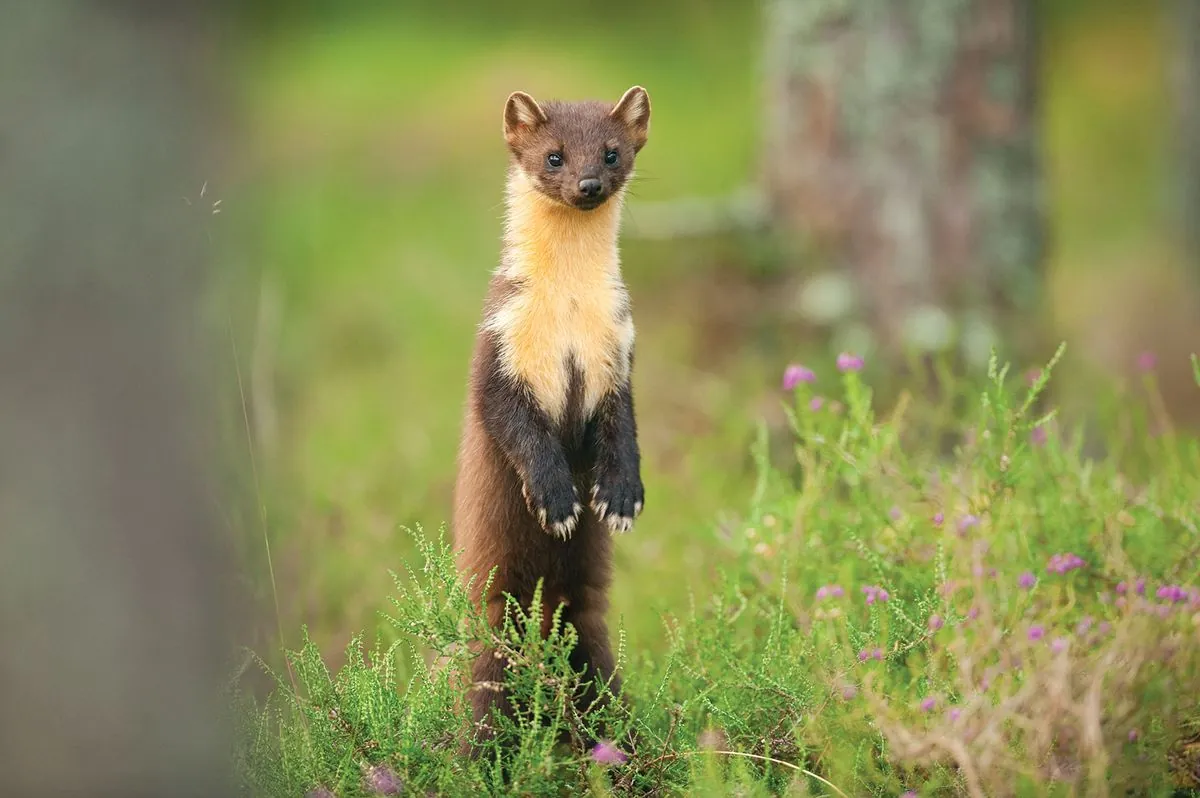In a significant conservation effort, 15 pine martens have been reintroduced to southern England, marking their return to the region after more than a century. This initiative, led by the Devon Wildlife Trust, aims to reestablish these cat-sized mammals in their former habitat.
Pine martens, members of the Mustelidae family alongside weasels and otters, vanished from South West England over 100 years ago. Their disappearance was primarily due to habitat loss, hunting, and trapping for their pelts. These omnivorous creatures, scientifically known as Martes martes, are native to northern Eurasia and can live up to 10 years in the wild.
The reintroduction process, which took place in September 2024, involved transporting eight adult females and seven males from wild populations in Scotland to secluded woodland locations in Dartmoor. The animals underwent a careful acclimatization period, spending three days in individual pens while being fed by local volunteers before venturing into their new environment.
To monitor their progress, each pine marten was fitted with a radio collar, allowing conservationists to track their movements over the coming months. This data will be crucial for understanding their adaptation to the new habitat and informing future conservation efforts.
The Devon Wildlife Trust plans to release more pine martens in 2025, with the hope that their population will gradually increase in the region. This strategy aligns with successful reintroduction programs in other parts of the UK, such as Wales.
Pine martens play a vital role in maintaining ecological balance. They are known to help control populations of invasive grey squirrels, which have been a concern in UK woodlands. These agile predators are mostly nocturnal and arboreal, with excellent climbing abilities that allow them to navigate through trees effortlessly.
Ed Parr Ferris, conservation manager at Devon Wildlife Trust, emphasized the importance of pine martens in restoring woodland ecosystems. He highlighted their unique adaptations, stating, "These rare mammals need our help to return to their former homes in the South West, but we also need their help to bring back the natural balance of wildlife to our woodlands."
Pine martens are solitary animals with large territories, communicating primarily through scent marking. They typically give birth to 2-3 kits per litter and use dens in hollow trees or rock crevices. Their diet varies seasonally, consisting of small mammals, birds, insects, fruits, and nuts.
This reintroduction project represents a significant step in wildlife conservation, aiming to restore a species that has been absent from the region for over a century. As protected animals under the Wildlife and Countryside Act 1981 in the UK, pine martens now have a chance to reclaim their ecological niche in southern England's woodlands.
